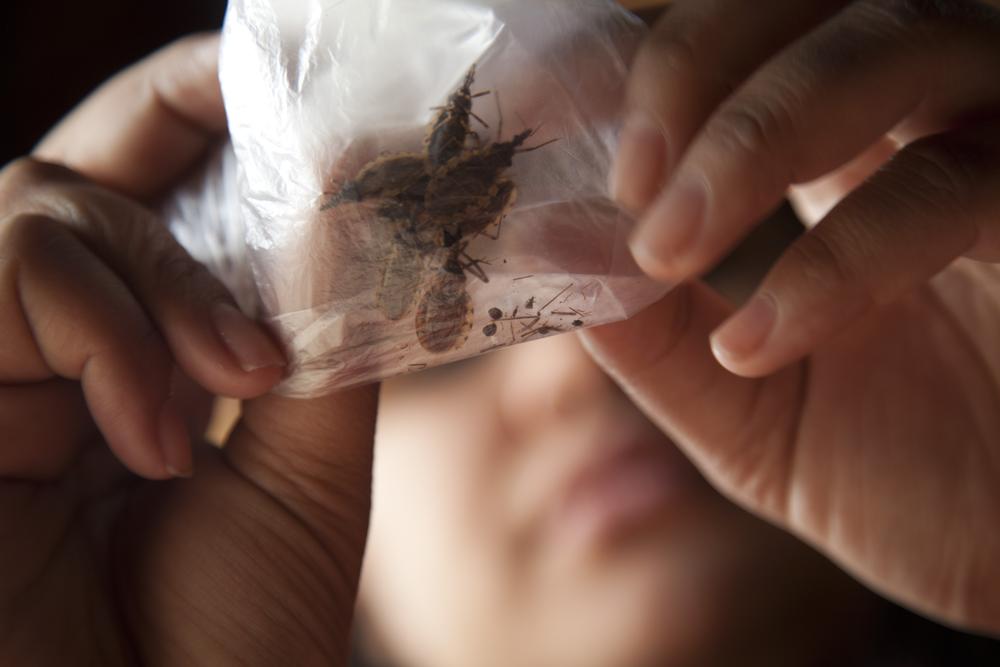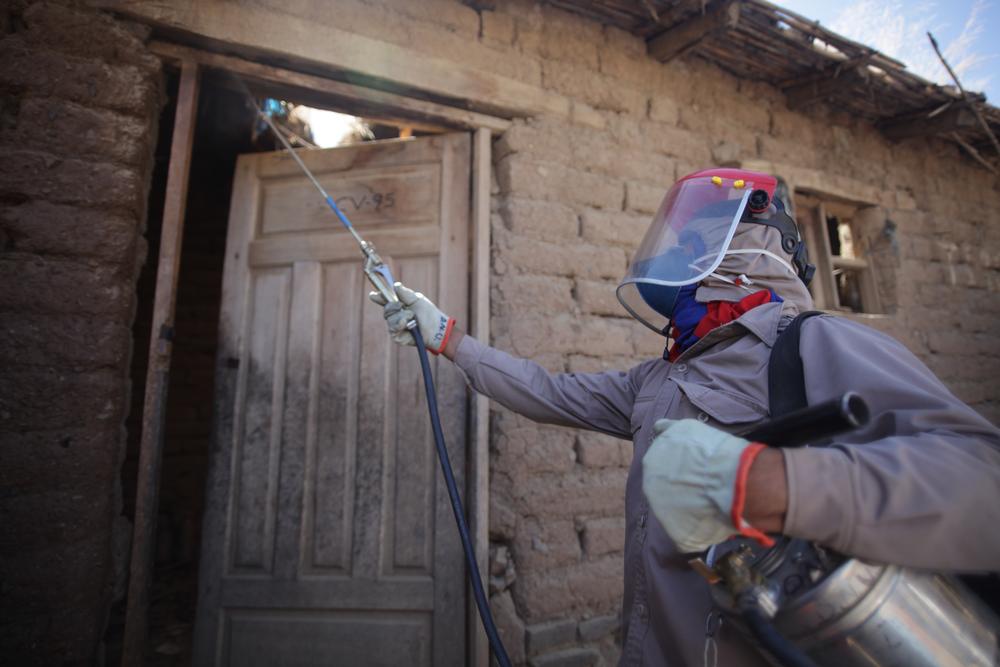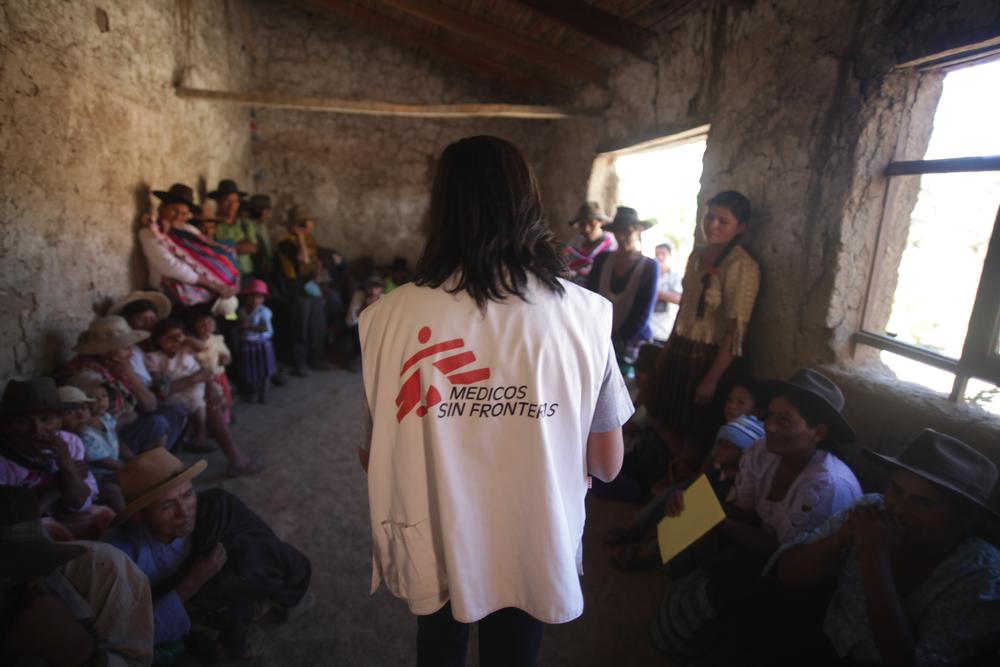Bolivia: Exterminating Chagas "kissing bugs"
People in Bolivia can soon use their mobile phones to report sightings of insects that carry Chagas disease.
Using the eMOCHA mobile app, people can text the location of bugs to our regional teams. In response to the notifications, we locate and exterminate them.
The GPS-based system is a breakthrough for Bolivia, which shares an endemic Chagas problem with much of Latin America – affecting between six to seven million people each year.
The parasitic disease is spread through the bites of triatomine, insects often found in the walls and roofs of rural houses and urban slums. These bites have earned them the nickname ‘kissing bugs’.
Chagas is notoriously difficult to detect and can lead to life-threatening heart and/or digestive problems if left untreated.
The eMOCHA system will be launched in three municipalities within the Narciso Campero Province.
Find out more about Chagas
How it works
The platform will enable people to detect the location of ‘kissing bugs’ in real time.
A free text message can be sent from anywhere using a mobile phone, reporting sightings to our teams in Bolivia.
The system then schedules a visit from a technician who, in addition to fumigating the property, sends back additional data recorded at the scene.
This information includes the number of family members living at the property, and the number of times a house has been fumigated. In turn, this process helps to monitor and control insects in the area.
This represents a huge step forward in Chagas prevention. Previously, simply just reporting the presence of triatomine insects could take up to one month.
Our aim is for this system to be implemented in more areas in Bolivia, and may even be used to track other diseases.
6-7 MILLION
PEOPLE WITH CHAGAS WORLDWIDE
12,000
PEOPLE KILLED BY CHAGAS ANNUALLY
30%
OF PATIENTS SUFFER CARDIAC DISORDERS
Treatment is possible
The eMOCHA application is being implemented as part of the comprehensive healthcare model we launched in 2015, in collaboration with the Ministry of Health in Bolivia.
With this model, we have shown it is possible to diagnose and treat Chagas patients using primary care in the most remote areas of the country, away from municipal capitals.
In the municipality of Monteagudo in Chuquisaca, our teams carried out community activities in training and awareness.
We also provided technical support to health workers from 17 health centres in the area.
This involved supporting the diagnosis of Chagas, using rapid and effective detection tests, as well as treating and caring for adverse complications resulting from the disease.
MSF in Bolivia
MSF began working in Bolivia three decades ago where, for half of this time, we were been focusing on addressing Chagas disease.
Thanks to MSF projects, more than 7,000 patients have received treatment, while triatomine bug prevention and control activities have been carried out in the most deprived areas of the country which suffer from the highest prevalence of this disease worldwide.
The Chagas Coalition estimates that 6.1 percent of the Bolivian population, more than 600,000 people, are living with the infection and another 500,000 are at risk of it. According to data from the Bolivian National Chagas Program (PNCH), 23,717 people were diagnosed in 2015, of which only 10 percent started treatment.
MSF teams in Bolivia are calling for guarantees to provide more comprehensive care of the disease and its complications. We have been developing a manual with the Ministry of Health that reflects our experience in implementing this model.


